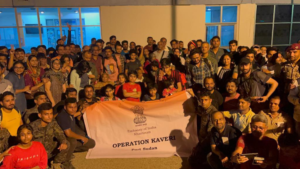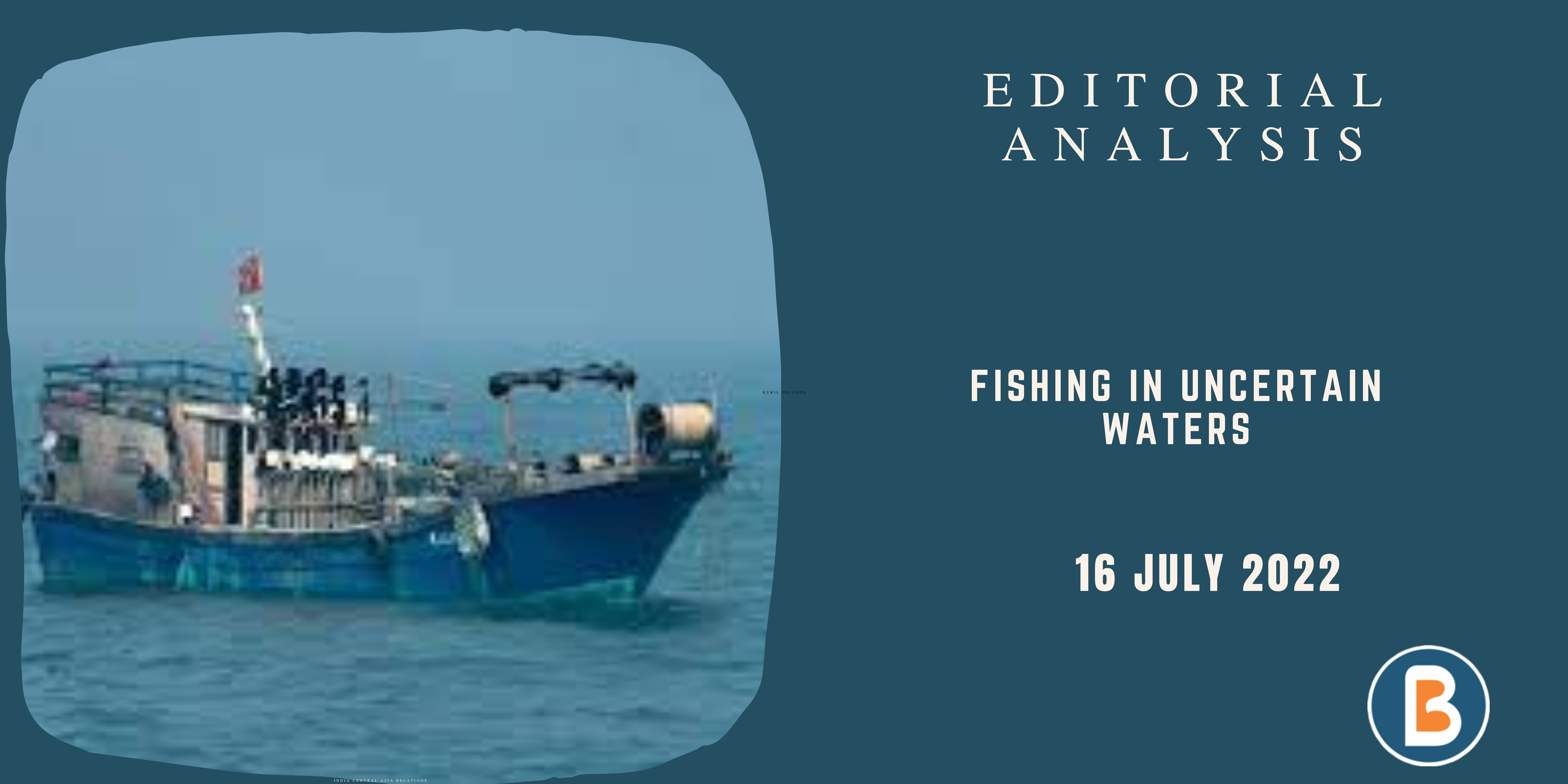Operation Kaveri
Context:
- On 15 April 2023, an armed confrontation between competing groups of Sudan’s military government erupted. Clashes erupted across Sudan, primarily in the west, as well as in the capital city of Khartoum and the Darfur area.
- Due to clashes between two military factions, over 3,000 Indians are stranded in various parts of Sudan.
- The Hakki Pikki clan is now distributed throughout Khartoum and the western Sudanese Darfur region.
- According to a few stranded members of the community, the whole population of the African country is estimated to be around 300 individuals, including women and children. Around 250 are in Khartoum, while 33 are in Darfur, where a civil war has raged for years.
Situation in Sudan
- Intense skirmishes erupted in mid-April 2023 between Sudan’s military and the country’s largest paramilitary group, the Rapid Support Forces (RSF).
- The riots were precipitated by a power struggle between the military regime’s two main groups, with the Sudanese armed forces supporting Gen Abdel Fattah al-Burhan and the RSF supporting former warlord Gen Mohamed Hamdan Dagalo, known as Hemedti.
- The power struggle dates back to the years preceding the 2019 uprising that deposed autocratic ruler Omar al-Bashir, who amassed formidable security forces that he purposefully pitted against one another.
- Bashir established the RSF to defeat a Darfur insurgency that began more than 20 years ago as a result of Sudan’s central government’s political and economic marginalisation of the local population.
- Bashir converted the Janjaweed, which eventually became the RSF, into a semi-organized paramilitary force in 2013 and awarded their commanders military titles before dispatching them to quash a revolt in South Darfur and then shipping many to fight in Yemen, and later Libya, in the conflict.
- The RSF, led by Hemedti, and the regular military forces, led by Burhan, worked together to depose Bashir in 2019.
- The power-sharing agreement with the people who spearheaded the protests against Bashir, which was expected to usher in a transition to a democratic administration, was shattered by a coup in October 2021.
- Hemedti, who has amassed enormous money from the illicit mining of gold and commands tens of thousands of battle-hardened veterans, backed the new transition plan, bringing tensions with Burhan to the surface.
- The continuous violence has prompted concerns about Sudan’s and the region’s stability, as well as the human rights of people affected by the conflict.
Rapid Support Forces (RSF)
- Sudan’s Rapid Support Forces (RSF) are a security unit that was established in 2013.
- The RSF grew from the Janjaweed, an infamous militia that began in the early 1980s as armed nomadic tribes in western Sudan.
- The Janjaweed began ravaging communities and creating havoc and gained international notice after being accused of genocide against the Fur, Masalit, and Zaghawa peoples in 2003.
- An estimated 2.5 million people were displaced, and 300,000 were killed.
- General Mohamed Hamdan Dagalo, better known as Hemedti, commands the RSF, which has a reputation for violence and human rights violations.
- The RSF was founded to combat insurgents in the Nuba Mountains, although it was later recognised as an autonomous security force in 2017.
- During pro-democracy rallies in 2019, the RSF played a key role in deposing President Omar al-Bashir, and it engaged in a power-sharing arrangement with the army to pave the way for democratic elections.
- However, the RSF and army conducted another coup in 2021, thereby halting the transition to a democratically elected government.
- The RSF’s history of violence, combined with its current position of power in Sudan, is reason for alarm among human rights activists and the international community.
Operation Kaveri
- Operation Kaveri is India’s evacuation mission to bring back its citizens stranded in Sudan amid severe fighting between the army and a rival paramilitary force.
- The Indian Navy’s INS Sumedha, a stealth offshore patrol vessel, and two Indian Air Force C-130J special operations aircraft are on standby at Jeddah for the operation.INS Teg will also assist INS Sumedha in its rescue efforts.
- Under Operation Kaveri, the first wave of stranded Indians were evacuated from Sudan. In a tweet, Ministry spokesperson Arindam Bagchi announced that the INS Sumedha, carrying 278 people, had left Port Sudan for the Saudi Arabian city of Jeddah.
- Sri Lanka has also asked India for assistance in evacuating Sri Lankans from the conflict zone.
Other Similar Missions
| Year | Operation | Purpose | No of people saved |
| 1990 | Kuwait Airlift | Before the Persian Gulf War in 1990, the operation was carried out to evacuate Indian expats from Kuwait. | More than 170,000 Indian citizens evacuated. |
| 2006 | Sukoon | During the 2006 Lebanon War, the Indian Navy launched the mission to evacuate Indian, Sri Lankan, and Nepalese people, as well as Lebanese nationals with Indian wives, from the fighting zone. | 2,280 people were evacuated from Lebanon |
| 2015 | Maitri | In the aftermath of the April 2015 Nepal earthquake, the government of India and Indian armed forces launched Operation Maitri in Nepal. | Over 43000 Indians were evacuated, and over 150 international tourists were evacuated, with 785 foreigners receiving transit visas. |
| 2022 | Ganga | The Indian government launched Operation Ganga to rescue its people who were stranded in neighbouring nations following Russia’s invasion of Ukraine in 2022. | Approximately 25,000 Indian nationals were evacuated.
147 people from 18 different nations were evacuated. |
Rebuilding Lives After War
- Safety and security: They are the top priorities for persons who have been evacuated from a combat zone. This could include providing them with temporary housing, food, and medical care.
- Psychological Support: Many persons who have been evacuated from a combat zone may be suffering from trauma, anxiety, or other mental health difficulties. They must have access to psychological care, counselling, and treatment.
- Rehabilitation: People who have been evacuated from a war zone may have had to leave behind their homes, families, and employment. As a result, it is critical to give them education and work possibilities for them to reconstruct their life.
- Integration and Inclusion: After being evacuated from a combat zone, people may feel alone and excluded in their new surroundings. It is critical to assist them in integrating into their new communities and feeling included.
- legal and administrative aid: Individuals who have been evacuated from a combat zone may have lost their documents, such as identification papers, birth certificates, and passports. They must receive legal and administrative aid to obtain the necessary paperwork to restore their lives.





